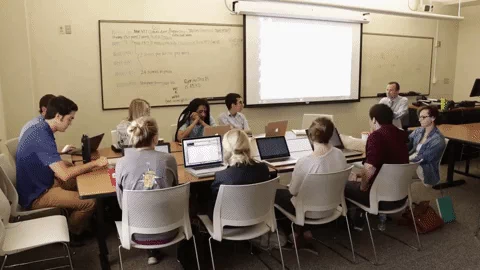
This logo isn't an ad or affiliate link. It's an organization that shares in our mission, and empowered the authors to share their insights in Byte form.
Rumie vets Bytes for compliance with our
Standards.
The organization is responsible for the completeness and reliability of the content.
Learn more
about how Rumie works with partners.

It's time for Spanish class. The room is mixed with nearly-fluent Spanish speakers, casual speakers, and those who are learning the basics. What do you leave the class with?
No matter what level you're on, or what language you're learning, here are 4 outcomes you should strive for while taking a language course.
1. Learning comes from speaking.
Although it may be intimidating, speaking with others can make you a more confident language learner.

The benefits when you practice speaking with others:
You practice your pronunciation, grammar,and sentence structure all at once.
The other speaker can give you feedback.
You pick up vocabulary from the other speaker when they talk.
The goal of language learning is to communicate with others, so this practice can help you feel more confident in your abilities!
Quiz
How might you learn the definition of new vocabulary when speaking to another person? Choose all that apply.
When you hear a new word, you can use context clues to find out what it means based on your conversation. You can also ask the other person what the word means if it's completely new to you.
2. Mistakes are part of the learning process.
The fear of making mistakes is real!
Mistakes might feel like the end of the world, whether it be pronunciation or grammar. However, mistakes are learning opportunities to better your understanding of the language.

In Spanish class, I used to avoid situations that required me to practice speaking because I wasn't confident in my pronunciation and was afraid of making mistakes.
However, my classmates didn't make fun of me when I made a mistake. Instead, they praised me for trying and helped me correct my errors.
I learned that learning takes trial and error, so don't let the fear of making mistakes stop you from trying.
3. Asking for help is important!
Whether it be from a native speaker, a teacher, or a fellow classmate, ask for help when you're stuck. Asking for help will allow you to pinpoint and work on an area of confusion before things get too complicated.

I was often confused by the rules for changing verbs in Spanish. Since they were important, I asked my teacher for help. We reviewed the rules and worked through some questions together.
When you ask for help, you clarify concepts and discover tips to understand things better. This can help you avoid making common errors in the future.
4. Be proud of your progress!

Learning a language is hard, and everyone goes at their own pace. Give yourself credit whether you're able to grab the basics or speak fluently. You're learning a complex yet valuable skill!
Take Action

Remind yourself of these things when learning a language:
This Byte has been authored by
Emily Nguy
Science Teacher